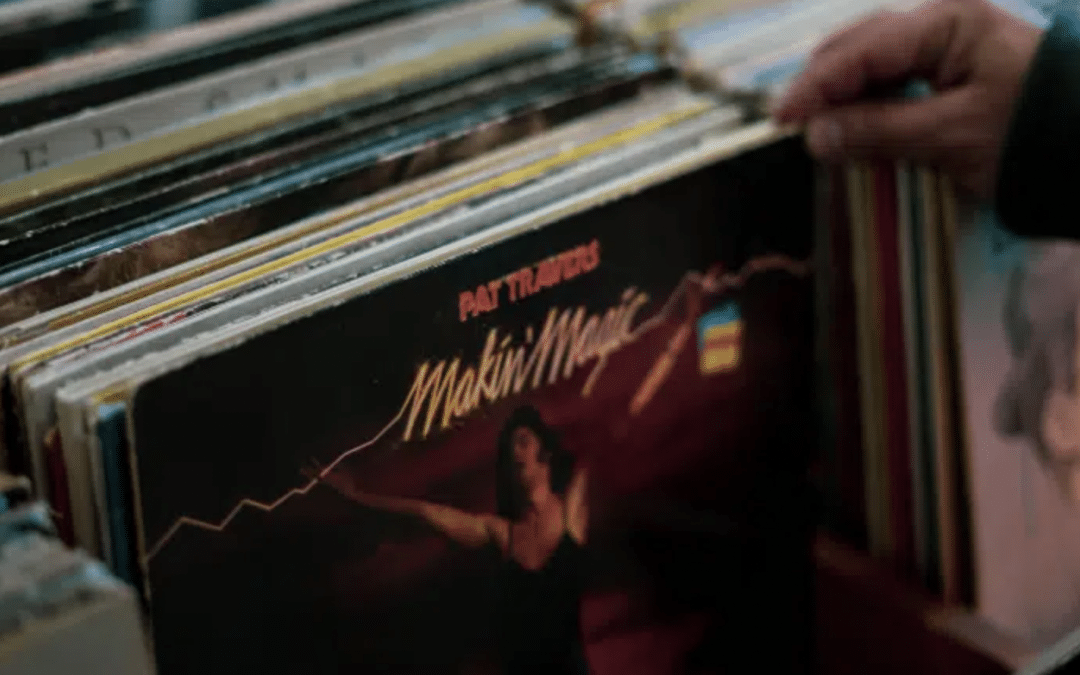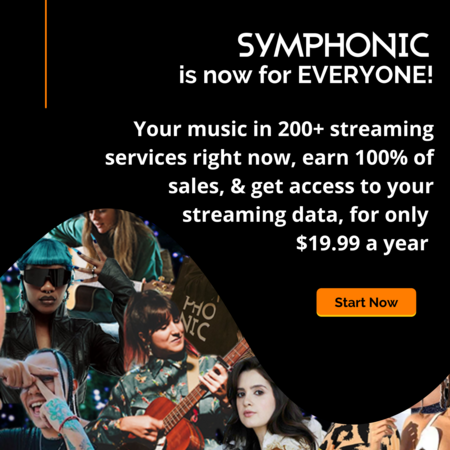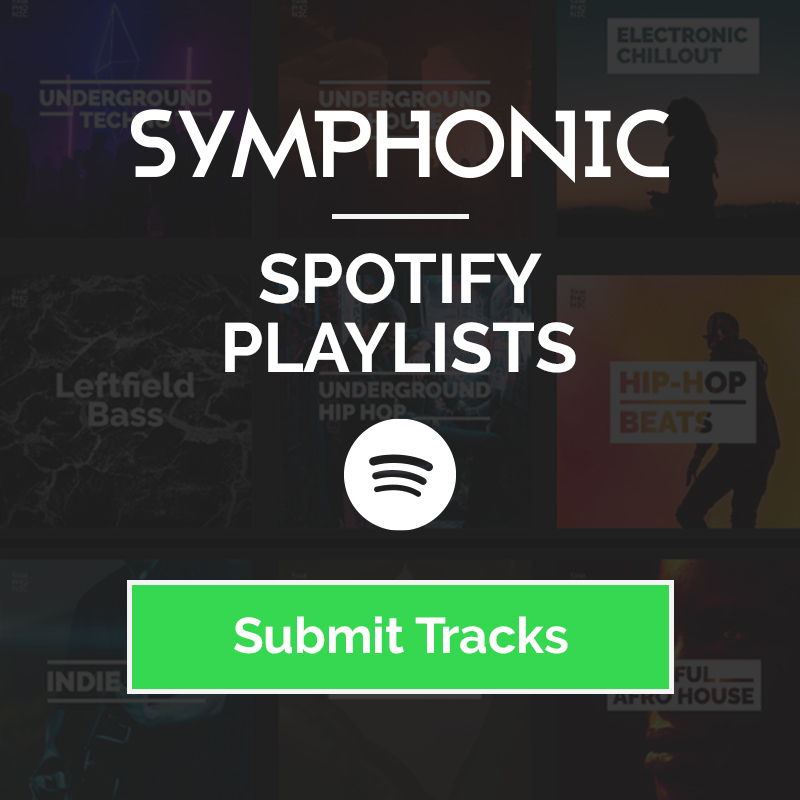
by Francesca | Feb 21, 2024 | Legal
Interested in starting your own label? There are a couple things you’ll have to do first to make it happen. In this post, we’ll give you a general rundown of the most important steps. Here’s what we know…
How To Register Your Own Record Label
What does a label do?
A record label is the entity responsible for releasing your master recordings to the public on retailers, streaming services, radio, etc.. Major parts of a record label’s work involve promotion, marketing your music, landing sync placements, and more. In addition, major labels often pay out advances to cover the recording costs for the album or single in addition to paying to produce physical releases like CDs or LPs.
“How do I know if I’m ready to start my own label?”
There are a couple reasons why someone would want to start their own record label. Whether you want to represent yourself or other artists, it’s a great way to gain some independence, learn more about the industry, direct the futures of other artists and genres, and give yourself the ultimate control over the destiny of your own music.
Regardless of why you want one, however, this is a complicated and time-consuming process that shouldn’t be taken lightly. Doing this on your own is possible, but not recommended if you have no experience in the game. Everyone has their strengths and weaknesses, so build a team that encompasses every skill you need to do this right. Once your team is in order, here’s what you need to do.
Define Your Vision
Your brand identity as a label will play a huge part in your success moving forward. It’s important to choose a specific vibe or genre you’d like to encompass as a label in order to solidify your brand identity in the industry. If you plan on taking on other artists under your wing, they’ll want someone who specializes in their specific genre and gets their vision.
In addition to deciding what genre (or genres) to focus on, this is the time to choose a label name that best represents you, get your official website set up, and trademark your label name. — Before you release anything, you MUST create your website and claim ALL social media pages for your brand prior to releasing your first album. Having your social media in order first gives it time to gain some traction before it’s time to promote you (or your clients) music.
Choose a Business Structure and Register with the State
Next, it’s time to decide on a business structure. Common options include sole proprietorship, partnership, limited liability company (LLC), or corporation. Each structure has its own advantages and disadvantages, so it’s not a bad idea to consult with a lawyer or accountant to figure out the best choice for you.
- For example, an LLC exists separately from its members, which means that those members are not personally responsible for any business debts and liabilities that may arise down the line. Instead, the LLC is responsible. On the other hand, a sole proprietorship is an unincorporated business owned and run by one person.
Choosing to go the sole proprietorship route gives you more personal control over everything, but an LLC saves you some liability if things don’t work out. These are just some general things to consider, but it’s up to you to thoroughly do your research and choose the right path for you.
Once you have made your choice, you will also need to register with the Secretary of State and update that registration annually.
Register with SoundExchange & Neighboring Rights Collection Societies
The royalties that SoundExchange collects and distributes are for the featured artist and the sound recording copyright owner. ASCAP, BMI and SESAC collect and distribute royalties for the songwriter, composer and publisher. — The difference is both satellite radio providers and webcasters pay SoundExchange when they stream music.
That means the only way to get that money is with SoundExchange.
They’re the ones who collect these digital performance rights from non-interactive music streaming on internet sources like SiriusXM and Pandora. If you don’t want to miss out on this money, Symphonic can collect SoundExchange royalties on behalf of sound recording owners and/or rightsholders.
Set Up Distribution Channels
Now, it’s time to get your (or your clients) music onto streaming platforms and DSPs like Spotify, Apple Music, Tidal, etc. To do this, you’ll have to go through a distributor like us. When you sign up for music distribution with Symphonic, we go to work to make sure your releases make the biggest impact possible on as many platforms as possible.
In Conclusion…
Creating your own record label can be an exciting and fulfilling venture, allowing you to discover and promote talented artists while leaving your own mark on the music industry. Although the process of registering a record label can seem daunting and complex, we hope these general steps will help the process go as smoothly as possible. With consistency, determination, and a passion for great music, there’s nothing you can’t do!

by Francesca | Feb 15, 2024 | Music Industry, Music Marketing
In the ever-growing world of entertainment publicity, reaching thousands of listeners on your upcoming releases require a unique plan. Until your brand is recognized worldwide (i.e. Beyonce), it simply doesn’t make sense to spend the majority of your budget on recording new assets just to release them to the public without a solid strategy. Even so, a plan made up of basic press pitching might not always do the trick to build the worthwhile and engaged fanbase you’re looking for. Thinking out of the box is becoming more important in every quarter as we progress into the age of digital streaming and internet consumption. As a listener, a few Fridays contain enough new music releases to last a lifetime, so how can yours make the cut?
We’ve put together a list of eye-catching tactics to build buzz and excitement around your new release.
1) Memorabilia
This begins with another incredibly important part of music marketing: developing a cohesive brand. Actively participating in the way your fans view your band as a whole is a required stepping stone before you tackle this marketing strategy. Memorabilia in this instance is something that’s brand-specific but still wide-reaching. Developing these assets starts with remembering memorabilia that influenced your childhood. Did you have a sweet set of Hot Wheels with crazy turns? Do you wish you still had that glitter lipgloss from your first school dance? Gather ideas from yourself and your band, create a list, and then brainstorm together how you can turn those ideas into marketing products using your brand instead of releasing yet another t-shirt with your logo on it. Besides being fun and interesting, most of these things become relics that fans will hold onto for a very long time.
A few great examples of bands harnessing this method are the band Sleep On It creating pillowcases that read “Sleep On It” with their logo, Dance Gavin Dance releasing a “Strawberry Milkshake” limited release beer, The Story So Far creating a viewfinder with photos taken by the band, and the list goes on.
2) Limited Edition Prints/Presses
It’s no secret that vinyl has made a triumphant comeback. For many artists, vinyl is the only type of physical copies they’ll release. Some even go as far as releasing cassettes for a real pre-2000’s feeling. Just by themselves, vinyl and cassettes are great ways to release an album since they clearly outlive any other music trend, so use that to your advantage and create limited editions and/or collectors editions! For those who already love to collect vinyl and cassettes, different sleeves or tape designs is enough reason to buy the same album twice. This strategy can be used in different instances, like in a pre-order bundle, a deluxe post-release album, a “B” side album, etc.
3) Harness Your Local Scene
Remember when we mentioned Dance Gavin Dance crafting up a limited beer? Imagine doing that for your band, with your favorite local brewery or your favorite sandwich shop. Sound cool? It’s actually not the hardest thing to do but requires a long process and a lot of dedication. Many local-run establishments love to support local bands that give back to their community in exciting ways like this! Have an elevator pitch ready and ask to speak to the general manager so you can explain why naming a turkey melt after your band Stale Bread would boost their sales and help promote your upcoming album. Brewing a specific beer involves alcohol laws and actual brewing knowledge (to an extent) but most local breweries will go for it if you can promise the product will move off shelves. Another way to harness your local scene is asking record stores to stock your upcoming release in a local section. If they don’t have one, pitch one!
4) Get Fans and Friends Involved
Your close friends and fans are obviously your biggest supporters, and they most likely would love to be involved in your band’s success. Ask your friends to help spread the word about your new album by hosting giveaways, build a scavenger hunt that involves clues leading to free release show tickets, create a drinking game that mocks your band, hire your friend to photograph your band, or commission an artist friend to create the album art or a new shirt. There’s nothing better than involving your other creative peers to promote each other’s work!
5) Give Your Release Show a Twist
Most album releases are complimented by a release show, where you perform your new music live for the first time. With the right amount of promotion and ticket sales, this is an exciting way to throw a party for all your hard work! Consider hosting the show at a non-traditional music venue. Years back, Carousel Kings played the first (and last, for good and hysterical reasons) at a Haunted Mill during the Halloween season for a truly unforgettable show. I can’t remember the songs they played but I will never forget that show. Giving your fans a reason to talk about your show, especially your album release show, can improve your future crowd numbers and build buzz.
Part of succeeding in the music industry is continuing to learn every single day. Being a “jack of all trades” is the norm in today’s connected globe, where all information about pretty much anything can be accessed via the internet. The best thing you can possibly do for your band is to learn about every aspect of the music industry and how you can use it for your advantage. With these branding ideas, you have no excuse to not promote your album as hard as you can!

by Francesca | Feb 8, 2024 | Music Industry
Job hunting. We’ve all done it, and most of us will continue to have to do it until retirement comes along. Indeed and Glassdoor are great for seeing everything and anything all at once, but what if you’re tired of wasting your time sorting through thousands of unrelated jobs? Believe it or not, there are job sites just for us music biz folks. Here are some of the best music industry job sites to help you land your next job…
9 Music Industry Job Sites To Help You Land Your Next Job
The Digilogue
The Digilogue is a diverse community of creators and industry professionals in music and tech. They curate conversations and programming around industry education, artist discovery content, and a great career resource on their website. Under their Music Careers tab, click on Job Postings, and you’ll find tons of job listings up for grabs. // Check it out for yourself on their website here.
Music Business Worldwide
This site is one of the best resources for anyone looking to broaden their horizons in the music biz. Music Business Jobs is a website for the global music industry to find the best candidates for their open positions. They post openings all over the country, and you can filter results by location, companies, and job type. // Check out what’s available right here.
Doors Open
The world of electronic music is shaped not only by artists and fans, but also by thousands of small businesses, from clubs to booking agents to publishers and promoters. If you’re looking to work in the electronic music scene, this resource is for you. Doors Open is a place for people to connect with companies and projects they believe in, and for independent music companies to find the staff they need to turn ideas into reality. // Check ’em out here.
Shesaid.so
Shesaid.so is a global community of women and gender minorities in the music industry. They’re absolutely awesome, and they happen to also provide a very useful job portal tab on their website where you can browse open positions and apply. // Click here to see what’s available.
Music Careers
Music Careers is built for music professionals by music professionals to help you find your next job in the music industry. They post up to date jobs, refresh every 30 days, and give you the ability to refine your search by specific niches within the industry. They even post freelance opportunities, too. // Check out what they’ve got to offer here.
Digital Music News
You may already be a fan of Digital Music News‘ industry articles to keep up to date on the latest news, but have you checked out the jobs tab on their website? There, you can check out music industry jobs from major record labels and streaming services to universities, merchandising companies, startups, and more. // Check it out here.
A2IM
A2IM has their own job board to help you find your perfect position. Whether you’re looking for temporary work, an internship, or full-time, their database can search jobs by keywords and location. // Check out jobs on A2IM here.
Music Jobs
Music Jobs is part of a global publication and online community which brings their subscribers industry opportunities and daily news from the world of film, TV, music and gaming. On their site, you can also sign up and subscribe to emails with job opportunities tailored specifically to what position you’re looking for. // Click here to check out the site and search for jobs.
Entertainment Careers
Entertainmentcareers.net is a great site which features jobs in in Film, Television, Music, Production Companies, Radio, Animation, Acting, Production, PR, Design, and more. Whether you’re interested in the music industry or something adjacent, this is the ultimate place to check. // Browse available jobs on their site here.
You got this!
⚡️

by Francesca | Jan 25, 2024 | Legal
This information is brought to you by Debbie Egel, an attorney whose practice includes writing and reviewing music contracts, running an independent label for over 10 years; and developing indie artists. She is knowledgeable of the economics of music, the DIY process, and has written an instruction manual for Indie artists, labels and managers called “For The Record” and teaches an on-line course. Debbie has a deep appreciation of the business of music as well as her legal knowledge as a practicing attorney. We are sharing it with you here to give you a sense of some of the decisions and complexities involved in these questions. Streaming Promotions does not provide legal or tax advice. You should consult with your personal legal and tax professionals regarding your specific situation before making any decisions.
When it comes to major record deals, there are a lot of things to consider. That’s why it’s important to always get a second, or even third, set of eyes on anything that requires a signature and involves your finances. Here’s what to look for before you dive in…
How to Know if Signing a Recording Contract Is Right For You
You LOVE music, and you have been working hard, creating and recording music. You’re also keeping up a social media presence, getting gigs, taking photos and posting, getting your look right, releasing and marketing music and the list goes on and on. Now you figure it must be working because someone has reached out and is speaking to you about signing a record deal.
While many artists view a record deal as the solution to their problems, look before you leap.
Record labels can be great opportunities to get your music in front of an audience and help you build fans. Labels can provide support in terms of production, marketing, legal knowledge and access to experienced industry vets. It takes a village and no one can do this alone. However, you should be careful, thoughtful, and selective before you sign on the dotted line.
The contract will be defined as binding you for a period of years or a number of singles or albums that have to be delivered to fulfill the agreement. The contract is like signing a marriage license. It is basically a relationship, and it is important to date before you get married. So how do you know if a record deal is the right move for you? First and foremost…
Do Your Homework
Artists should be paying attention to these items:
- What is the label’s track record with your genre?
- Do they have a website?
- Do they have artists that have been signed fared well?
- Is there already an act signed that sounds similar to you?
- What can this label do for you that you can’t currently do on your own?
- Have they listened to your music? What do they have to say about it?
- Have you spoken to them and what is their plan for you moving forward?
- What type of assets can they provide such as production, marketing, finances etc.?
- How long does the contract bind you?
- Has the company asked you about split sheets, production agreements for your current music.
- Philosophically, do both parties to the agreement have the same vision for the music?
If the relationship is a failure, it can often mean the ruin of an artistic career. So be careful!
What do labels look for?
Truth be told, artists working independently can only get so far before needing a bigger team. Labels can be that team, helping you increase your reach and overall success. However, this costs money.
Like any successful business, if you need a large injection of money in order to get to the next level, you must be able to recover that investment. With record sales declining and streaming income at an all time low, record companies need better ways to secure their investment. For example, like a 360° contract, which is used to potentially make a profit from their investment.
How have you built your fanbase? Are they buying your projects? Look at it like this: if you’ve been pumping out nothing but free albums, do you really anticipate them buying your major label debut if you haven’t put any value on your music beforehand?
What else do they consider?
Labels also typically consider physical attendance at your shows and whether you can sell units or derive money from streaming. They also look at your other income streams, like merch and touring.
Remember, both sides have to benefit or else the relationship is not going to be successful.
What you should know at the table…
Contract terms depend on the bargaining power of the artist. A new artist with no real history of earnings will not get the same terms as an artist with a proven record of strong earnings.
These terms can include:
- Royalty rates
- The number of songs to be delivered
- What costs the record company will pay for
- The amount of money the record company will spend on social media campaigns
- What type of music production support they can provide
- Whether the record company will also participate in the money earned from music publishing, merchandising and live performances.
If you have confidently answered these questions and are willing to give up a percentage of your earnings, it’s time to contact an attorney to review the deal.
From a legal standpoint, a contract that is well written and contains clear and unambiguous deal terms is off to a good start. Just make sure to use an entertainment attorney that understands these terms and can fight for you during contract negotiations.
IMPORTANT NOTE: Think twice about using an attorney the label directs you to!
In Conclusion…
It is important to point out again that team work makes the dream work. The progression in an artist’s professional career is to attract a label that provides all the necessary elements to get you to the next level. Having said all this, focus on making the best music you can and building your fan base. It all begins and ends with GREAT music. If you’re making waves, labels will come to you, and that’s a much better position to be in anyway.

by Francesca | Dec 20, 2023 | Legal
The legal aspects of this industry aren’t always so straightforward. That’s why we place the utmost importance on providing as much information as we can to help you navigate through it with ease. There are many different types of contracts artists and labels will encounter throughout their careers, so let’s break it down a bit. In this post, you’ll learn about 6 major types of record label contracts you should definitely know about. Let’s dive in…
6 Types Of Record Label Contracts
Exclusive Recording Contract
The exclusivity of this contract applies to both the Artist (as a recording and performing musician) and to the songs written by the Artist during the term of the agreement. An additional number of songs written prior to the term are also assigned in the agreement. The exclusivity in respect to the Artist applies for the length of the agreement and in respect to the songs for the life of copyright (unless otherwise agreed).
- This one is a useful agreement for a label looking to engage an artist exclusively for a number of years, both as a performer and in relation to his/her songs.
Music Distribution Contract
With this agreement, the owner of master recordings grants an exclusive right to distribute ‘records’ embodied in any format (compact discs, phonograph records, audio cassette tapes, digital audio tapes, DVD, etc) for a certain period of time (the Term) and in certain countries (The Territory).
Non-Exclusive Recording Contract
A Non-Exclusive Recording Contract is an agreement under which copyright on certain recordings is assigned (from Artist to Label), but the Artist is not engaged exclusively by the Label as a recording and performing musician.
Therefore, the Artist is able to free to assign copyrights not covered in this agreement to other labels.
- This type of contract is a flexible contract for a label looking to license particular recordings but do not wish to tie up an artist exclusively for a number of years or for a number of releases.
- It can be used as a trial agreement before moving on to an exclusive recording type of arrangement.
360 Deal Recording Contract
A 360 Deal Recording Contract is an agreement which sets out the conditions in which a music company engages an artist with respect to his/her/their services as a recording artist, songwriter, composer/arranger of music and actor/actress (for film, TV and Theatre).
It also grants the music company merchandise, sponsorship and endorsements rights for the use of the artist’s names, likenesses, and related Intellectual Property. In addition, it’s important to note that 360-type deals have come around as the recording labels response to three major trends in the music industry in recent years:
- The steady decline of revenue from record sales
- The increase in prices of tickets to live events and fan expenditure on merchandise and
- The strengthening of the capabilities of the collecting societies and publishers getting better at their roles which translates in income from public performance and synchronisation becoming more and more significant.
Music Composition and Recording Service Contract
A Music Composition and Recording Service Contract is an agreement under which an artist is engaged by a company to compose, arrange, record and produce a piece of music to be used in the company’s own production (TV, Film, Video Game, etc).
With this, the artist receives a full and final fee as remuneration for the services provided and all copyrights are transferred to the company and moral rights waived. However, the artist remains entitled to his/her writer’s share of public performance royalties received directly from his/her performance right society (PRS, BMI, ASCAP, GEMMA, etc).
- Company gets granted a license to use the artist’s name, likeness, voice and biographical data in relation to the company’s production and artist promises that the music delivered to the company does not infringe any third parties’ copyright.
- This contract is useful for companies looking to commission both recordings and compositions from an artist for use in TV, films, etc.
Recording and Publishing Agreement On Certain Recordings
A Recording and Publishing Agreement On Certain Recordings is a type of agreement under which an Artist assigns both recording and publishing rights to a label in exchange for an advance, royalties and a commitment from the label to fund and release the recordings and procure synchronization and/or performance license for the compositions.
- Recording rights are assigned for the length of copyright (50 years after release) and Publishing rights for a rights period of fifteen (15) years.
- The label will have six (6) months from delivery of the songs to procure a release of the recordings and performance and/or synchronization usages for the Compositions.
- This type of agreement is especially useful for labels looking to acquire both recording and publishing rights from artist for particular songs using one agreement.







